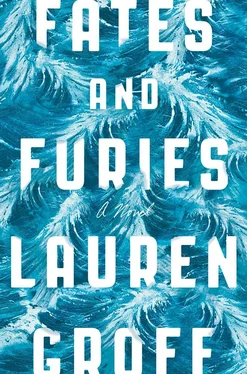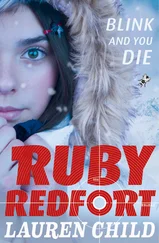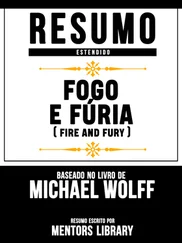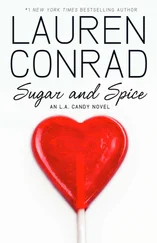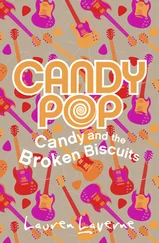She was in the kitchen, back turned toward the veranda door, not doing the dishes, listening. Oh, that tiny cocked ear, the white-blond hair brushing her shoulder. The radio was on, comfortingly low. He listened also and heard with a little pulse in the gut a familiar voice, something with the drawn-out vowels of a storyteller, and the pulse turned into a flap of dismay when he understood that the voice was his. It was the radio show from this morning. Which part? He could barely remember. Oh, yes, a story from his lonely Florida childhood. His own broadcast voice went uncomfortably intimate. There’d been a swamp he’d go down to in the middle of a sinkhole. One day, a leech stuck to his leg. And he’d been a boy so terribly hungry for companionship that he left it there to suck his blood, walked home and ate supper, and the whole time took comfort in his companion against his skin. When he turned over in the night and exploded the thing, there was so much blood that he felt as guilty as if he’d murdered a person.
The hostess laughed, but it was a half-shocked laugh. Mathilde’s hand went out and clicked the radio off hard.
“M.?” he said.
She took a breath, and he watched her rib cage compress as she let it out. “Not your story,” she said. She turned around. She was not smiling.
“Of course it was,” he said. “I remember it vividly.” He did. He could feel the hot mud on his legs, the horror dissolving to a kind of tenderness when he found the small black leech on his skin.
“Nope,” she said, and took the ice cream out of the freezer, the cobbler out of the oven, the bowls and spoons outside.
As he ate, a slow bad feeling spread up from his gut. He called for a car to take the other men back. By the time it drove off, he knew Mathilde was right.
He came into the bathroom in the middle of Mathilde’s ablutions and sat on the side of the tub. “I’m so sorry,” he said.
She shrugged, spat foam into the sink.
“To be fair, it was a leech,” he said. “A story about a leech.”
She rubbed lotion on her hands, one, the other, looking at him in the mirror, and said, “My loneliness. Not yours. You’ve always had friends. It’s not that you stole my story, it’s that you stole my friend .” And she laughed at herself, but when he came into bed, her light was out, and she was on her side, and though he put his hand on her hip, then between her legs, and kissed her neck, and whispered, “What’s yours is mine and what’s mine is yours,” she was already sleeping or, worse, she was pretending to be asleep.
THE SIRENS (Unfinished)
Too much pain. It would kill her.
Mathilde put the manuscript in the archival box without reading it, and the movers carried it away.
Scene: A gallery. Cavernous, shadowy, gilded birch trees foresting the walls. Tristan und Isolde on the sound system. Piratical crowd drinking from the bars in all four corners of the room, all bloodlust and hunger. Sculptures on plinths uplit in blue: large, amorphous, molded-steel forms that resolve into terrified faces, titled The End . The gallery, the art, brings to mind Dürer’s woodcuts of the apocalypse. The artist was Natalie. She was posthumously celebrated; a photo of her was blown up, pale, buzz-cut, triumphant over the scene.
Two bartenders during a lull. One young, one middle-aged, both handsome.
MIDDLE-AGED:… telling you, these days I swear by juice. Kale, carrot, and ginger—
YOUNG: Who’s that? Tall man, just came in, with the scarf. Oh my stars.
MIDDLE-AGED [ Smiling ]: That? Lancelot Satterwhite. You know who he is.
YOUNG: The playwright ? Oh my god. I have to meet him. Maybe he’ll give me a role. Never know. Oh, man. He kind of sucks up all the light in the room, am I right?
MIDDLE-AGED: You should’ve seen him when he was young. Demigod. At least he thought so.
YOUNG: You know him? Let me touch your arm.
MIDDLE-AGED: He was my understudy one summer. Years ago. Shakespeare in the Park. We were Ferdinand. My language! Heavens! I am the best of them that speak this speech, et cetera. Though I always thought of him more as a Falstaff than anything. So gabby. Arrogant as hell. He never made a go of the acting thing, though. There was something just, I don’t know, unconvincing about him. Also, he was far too tall and then he got fat and then skinny again, apparently. It was kind of pitiful. Though, I mean, he did fine in the end. Sometimes I wonder if I should have taken a separate path, you know? If I got stuck, my moderate success propelling me moderately, all that. Better to flame out, try something new. I don’t know. You’re not listening.
YOUNG: Sorry. I’m just. Look at his wife. She’s stunning.
MIDDLE-AGED: Her? She’s bloodless, all bones. I think she’s hideous. But if you want to meet Lotto, you got to go through her.
YOUNG: Huh. I think she’s unbelievably beautiful. Is he… faithful?
MIDDLE-AGED: Two camps on that one. Hard to tell. He’ll flirt until you’re a blob of goo and make you fall in love, then look all befuddled when you come on to him. Happened to all of us.
YOUNG: To you?
MIDDLE-AGED: Sure.
[ They look at the froglike man who has sidled up, who is now listening, the ice in his glass clicking. ]
CHOLLIE: You, boy. Need you to do a piece of work. Easy hundred bucks. What do you say?
YOUNG: Depends on what it is, sir.
CHOLLIE: You need to accidentally spill a glass of red wine on Satterwhite’s wife. All over that white dress, really get it in there. Bonus is, while you’re at it, you’ll get close enough to Satterwhite to slip a note in his pocket. See where it takes you. Maybe he’ll call you for an audition or something. You in?
YOUNG: Five hundred.
CHOLLIE: Two. There are seven other bartenders in the room.
YOUNG: Done. Let me borrow your pen. [ He takes Chollie’s fountain pen, scribbles on a napkin, tucks it into his pocket. Looks at the pen, tucks it in, too. ] This is so awful. [ He laughs, puts wine on a tray, speeds off. ]
MIDDLE-AGED: What are that kid’s chances of scoring with Lancelot, I wonder.
CHOLLIE: Less than zero. Lotto’s as straight as a stick and sickeningly monogamous, too. But it’s fun to watch. [ Laughs. ]
MIDDLE-AGED: What are you up to, Chollie?
CHOLLIE: Why are you talking to me? You don’t know me.
MIDDLE-AGED: I do, actually. I used to go to the Satterwhites’ parties in the nineties. We’ve had some conversations in our time.
CHOLLIE: Oh. Well, everybody went to those.
[ There is a shattering of glass, and the crowd sound hushes briefly. ]
MIDDLE-AGED: Mathilde took that gracefully. Of course she did. Ice queen. Off to the bathroom with salt and seltzer. And you’re right, everybody went to those parties. And everybody wondered why you were Lancelot’s best friend. Brought nothing to the table, really, did you. So unpleasant.
CHOLLIE: Well, I’ve known Lotto the longest, you know, all the way from when he was this skinny Florida Cracker with a serious zit problem. Who would have thought? These days he’s famous and I own a helicopter. But I can see that you’ve really come into your own with this mixology pursuit of yours. So, you know. Congratulations.
MIDDLE-AGED: I—
CHOLLIE: Any way, glad we got all caught up, blah blah. I have something to do. [ Moves off toward the center of the room, where Young is dabbing at Lancelot’s pants with a paper napkin. ]
LANCELOT: No, buddy, I’m serious, I don’t believe you got any wine on my pants. But thank you. No. Please stop. Please. Stop. Stop.
YOUNG: Tell your wife how sorry I am, Mr. Satterwhite. Please send me the bill.
Читать дальше
